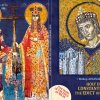Добра кафа, добро пиво, вино, добар коктел, укусно јело и колач. Данашњи гости ресторана било где у свету очекују врхунску понуду и неће се вратити ако једна од тих ставки недостаје. Претње од тероризма, победе политичких опција које нису свима потаман, економска (не)стабилност, нису промениле традиционални однос бармена и госта.
– И даље свако ко уђе у локал и седне за шанк очекује да, уз капљицу и залогај, и ћаскање са барменом „отупи бол” свакодневице – каже за „Политику” Душан Зарић, бармен, миксолог и власник „Employees only”, једног од најбољих коктел барова у свету, који је ових дана боравио у родном Београду.
Мада је на „привременом раду”, дужем од две деценије, у Сједињеним Државама, редовно долази у домовину због породице, али и да пренесе знање овдашњим колегама.
– У овом послу, као и у сваком другом, има много тајни, али ми их међусобно делимо. Нису у питању само оне о спремању коктела. Много су важнији психолошки алати. Сви су данас под стресом. И људи који живе у Њујорку, Лос Анђелесу или овде у Београду, само се тај стрес разликује. Наш посао је да када гост уђе у бар стрес не изађе са њим – каже уз осмех Зарић, кога је 2013. „Форбс” уврстио у 50 најутицајнијих планетарних стваралаца добрих укуса – тејстмејкера.
Несуђени машински инжењер по доласку у Велику јабуку одлучио је да каријеру гради у послу везаном за алкохолна пића, за који многи тврде да је на другом месту после погребних услуга по немогућности да пропадне. Био је ученик чувеног Дејла Дегрофа. Душан је са колегом Џејсоном Космасом коаутор две књиге: „You didn’t hear it from us” и „Speakeasy Classic Socktails Re-imagined by New York Employees Оnly Bar”. На жалост, за сада их нема на српском.
На нашем тржишту не могу да се нађу сви састојци коктела које Душан спрема у баровима у Њујорку и Лос Анђелесу, па домаћи издавачи не желе да преводе штиво. Спрема и два нова наслова. Један са колегом биће о девет основних матрица свих коктела, из којих су касније настали остали. Самостално ради на „Барменском приручнику за преживљавање”.
Питамо га да ли је писање његова борба против стреса? Уз осмех одговара да бармен, уколико жели да буде добар у свом послу и дуго траје, мора сам да се добро осећа.
– Није то мој вентил, само желим да пренесем искуство колегама. А рад са људима је најтежи. Да бисмо пружили госту нешто несвакидашње у неколико сати колико проведе у нашем локалу, морамо и сами да будемо задовољни – појашњава мајстор шејкера и миксовања безалкохолних и алкохолних укуса.
Душан је током овогодишње посете Београду одржао предавање такмичарима „Негрони окршаја”, барменима који се боре за националног победника у справљању коктела, названог по италијанском грофу. Српски победник добиће прилику да своје умеће покаже у Милану.
Извор: Политика





